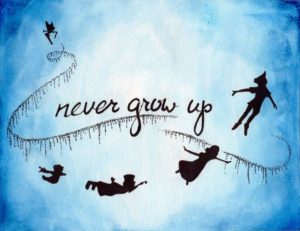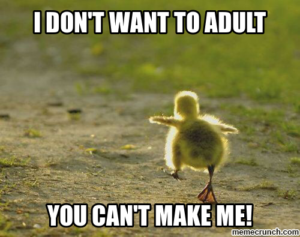A lot of these posts will be on what we actually do at the writing group I’m involved with, this one is on why we do it.
As I’ve said, I rarely do exercises with my teen writers, because I think they’re always much more engaged with their own ideas than anyone else’s, but I do suggest exercises they can do when they’re stuck for an idea of their own.
Anyway, we were doing this exercise where you write twenty sentences, each beginning with the words ‘I remember’. Then you write twenty more beginning, ‘I wish’. Then you use what you’ve got as raw material to write a poem or story.
One of the girls was reading out her ‘I remember’ list and said, I remember playing Pretend with my friend for the last time.
I thought, Oh God, what happened, did her friend die or something? I hesitantly asked and she said, We were just playing Pretend one day and she suddenly stopped and said, “This isn’t working anymore,” and then we went inside and played video games.

I think that probably broke my heart even more than the dead-friend scenario.
My teen-writer said she remembered being devastated because she loved playing Pretend. This girl actually has one of the most incredible imaginations I’ve ever come across and I think she’d still be killing it at Pretend!

It felt like a moment from a coming of age novel. Is that really the defining feature of growing up? Losing your imagination?

I’d like to think it’s not, or can at least be staved off a while, but I do notice there’s a definite difference between the way little kids and teenagers create. Little kids jump in with both feet and seem to swim in a sea of nonstop lunacy, while teenagers tend to spend the first few minutes looking around them, thinking, ‘What’s he doing? Am I doing this right?’ before embarking on something sensible/logical/rational/pedestrian and fussing over the punctuation.
So maybe it’s not a failure of imagination, maybe it’s just that they have more filters. The ideas are in there but they get rejected because they’re too silly or too ambitious or too embarrassing. Too silly/ambitious/embarrassing for whom though? It seems like somewhere between childhood and adulthood we acquire an inner censor that sits in judgement. All writers have this. All people have this. It doesn’t help that (and maybe even stems from the fact that) the process of going through education is a process of being constantly judged and ranked. So I think a space for creativity that avoids judgements and restrictions is really valuable.
Judgement should of course be part of education. If I ever have heart surgery I should hope my surgeon has been rigorously tested. And if I buy a novel, I sincerely hope the writer has put a lot of effort into learning her craft and been told in no uncertain terms by her editor to remove the crap bits. I’m not saying you can’t or shouldn’t teach the craft of writing, I just question the value of teaching it to kids, who I think have to explore creativity and discover a love of it long before they start worrying about quality.

And what they’re doing is not ‘mucking about’. Pure imagination is just as important as craft and it’s something that can be overlooked in writing classes precisely because writing teachers feel they have to teach you something specific and tangible. I have a friend who taught a workshop to university writing students and found they were completely shocked and stumped by an exercise that required them to just come up with ideas on their own out of nowhere. Because all they’d ever focused on in university was craft. It’s assumed imagination is a given if you’re a writer, but imagination can be hard. Especially if you got out of the habit of using yours when you were a kid.

I think when you give a child freedom to read and write whatever they like, two things happen:
- They learn craft (as well as SPG) through osmosis, through practice, in a completely unconscious and natural way.
- They develop imaginative muscles that will feed them with ideas through their adulthood.
Conversely, I think when you focus on teaching craft and technique to a kid who isn’t that confident or interested, two things happen:
- They get bored or discouraged by the fact that they’re apparently getting it wrong or aren’t good enough.
- Their imaginations atrophy.

Honing their craft will be important if and when they get to the point where they want to make a career of writing. But imagination is important for everyone, whether they ever want to be professional writers or not. The process of creating confers benefits that have nothing to do with the end product. Imagination is a refuge, a problem solver and the source of every new thing that’s ever come along.
So that’s why I think it’s important that young people have the chance to nurture theirs, and I love that our writing group gives them the opportunity to play Pretend a while longer.
Leave a Reply